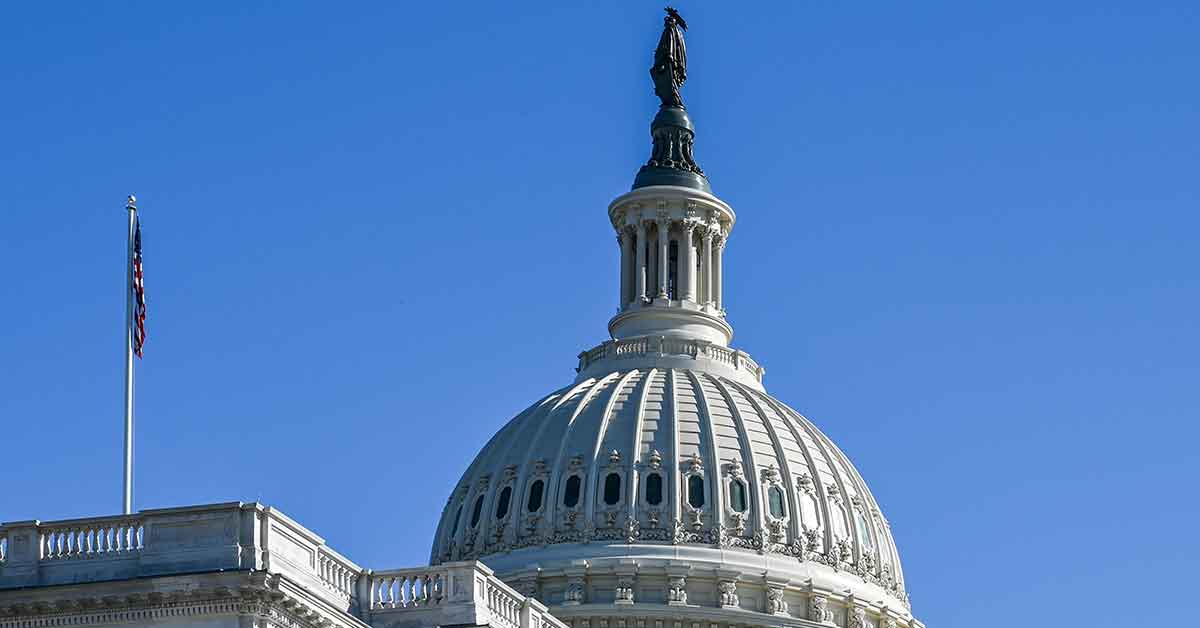 Last week, House Democrats announced their priorities for the next phase of COVID-19 response legislation by passing the Heroes Act. The bill, which is widely viewed as “dead on arrival” in the Senate and comes with a price tag of nearly $3 trillion, serves as House Democratic Leadership’s opening offer in negotiations with Senate Republicans and the Trump Administration on the next round of legislation. Key provisions of the bill include:
Last week, House Democrats announced their priorities for the next phase of COVID-19 response legislation by passing the Heroes Act. The bill, which is widely viewed as “dead on arrival” in the Senate and comes with a price tag of nearly $3 trillion, serves as House Democratic Leadership’s opening offer in negotiations with Senate Republicans and the Trump Administration on the next round of legislation. Key provisions of the bill include:
- Nearly $900 billion in funding for state and local government relief
- Increased flexibility for both eligibility for and forgiveness of Paycheck Protection Program loans
- Another $100 billion appropriated to the Health Resources and Services Administration’s Provider Relief Fund
- $75 billion for nationwide testing and tracing efforts
- Increasing the Federal Medical Assistance Percentage (FMAP) to 14% for one year beginning on July 1st
- An extension of the federal student loan provisions on payments and interest through September 2021
- Establishing a legal safe harbor to provide access to banks for legal cannabis businesses
- Another round of $1,200 Economic Impact Payments
- $25 billion in funding for the Postal Service
- An extension of the $600/week Federal Pandemic Unemployment Compensation (FPUIC) through January 2021
While Speaker of the House Nancy Pelosi was ultimately able to secure enough votes from her caucus to pass the bill, not all Democrats were supportive. A number of moderate Democrats voted against the bill, along with Progressive Caucus Co-Chair Pramila Jayapal (D-WA), signaling that Pelosi and her team may have to address concerns within their own party before negotiations with Republicans can begin in earnest. The House is now in recess until May 27, after Memorial Day.
For its part, the Senate appears to be in no hurry to take up the Heroes Act or begin work on its own bill, opting to use much of this week – and likely the rest of the month – to take up executive branch nominations and hold committee hearings. Senate Majority Leader Mitch McConnell called the Democratic-written Heroes Act a “totally unserious effort.”
There will almost certainly not be any real movement towards a passable “Phase 4” or “CARES 2” bill until mid-June at the earliest, but even now, we can see what issues will drive negotiations. Perhaps the top issue for Democrats is likely to be relief for state and local governments dealing with the fallout of the Coronavirus pandemic. Democrats have been pushing for this relief since March, while Republicans have thus far opted to wait and see what pertinent information can be gleaned from the implantation of the CARES Act before providing any additional relief. Party loyalty aside, this is an issue where Democrats may find a handful of allies across the aisle (possibly Maine Senator Susan Collins and Louisiana’s Bill Cassidy), though they will undoubtedly still face strong opposition from Republican Senators who don’t want to see federal funds used to pay off states’ outstanding debt and other liabilities from before the crisis. Whatever form state and local government relief takes, it may be directly tied to a key priority for Senate Republicans: liability protections.
Majority Leader McConnell and Sen. John Cornyn (R-TX) are reportedly writing legislation that would exempt certain businesses and employees from liability during the pandemic. As many Congressional Republicans, and even the president, continue pushing for cities and states to reopen for business, liability protections will be critical in addressing concerns from business owners across the country.
Tax provisions may also be a focus of negotiations. President Trump has been advocating for a payroll tax as far back as March, though he has softened his stance slightly since the idea was largely ignored on Capitol Hill. Senate Republicans will likely want to expand and/or enhance the CARES Act’s Employee Retention Tax Credit as well. For her part, Speaker Pelosi has previously called for reducing or eliminating the cap on state and local tax deductions, and even included it in the Heroes Act, despite the potential political pitfalls.
Small businesses will also remain a focus of any future pandemic response legislation. While the burn rate of available funds via the Paycheck Protection Act has slowed significantly, the program is expected to run out of funds again sometime in June. Both sides will likely want to replenish funding for the program and various members on both sides of the aisle will almost certainly push for changes to the program’s eligibility and loan forgiveness.